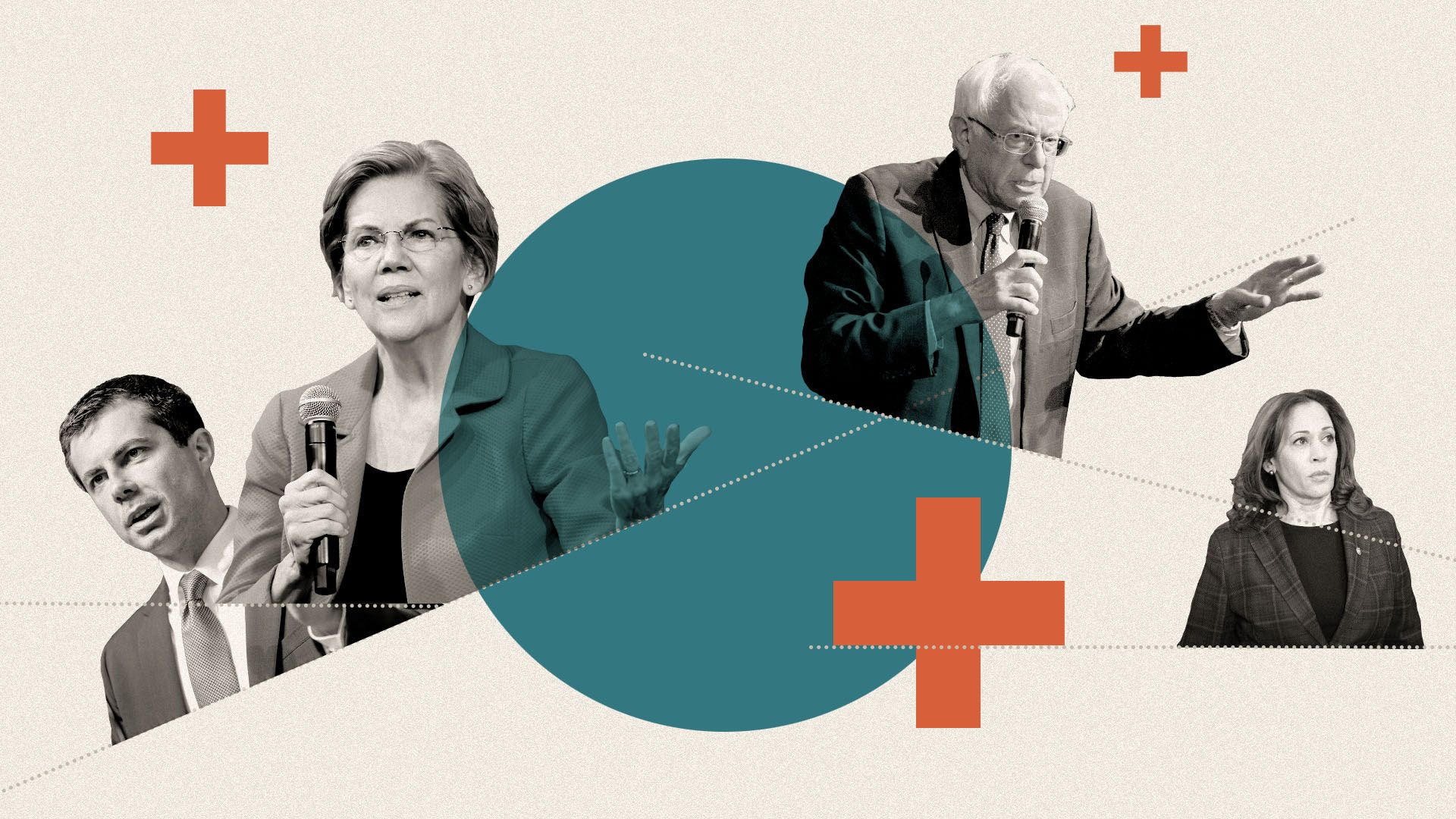Dec 7, 2019 - Health
Democrats' divide on Medicare for All
Add Axios as your preferred source to
see more of our stories on Google.

Photo Illustration: Sarah Grillo. Photos: David McNew/Getty Images, Drew Angerer/Getty Images, Ethan Miller/Getty Images, and Zach Gibson/Getty Images
